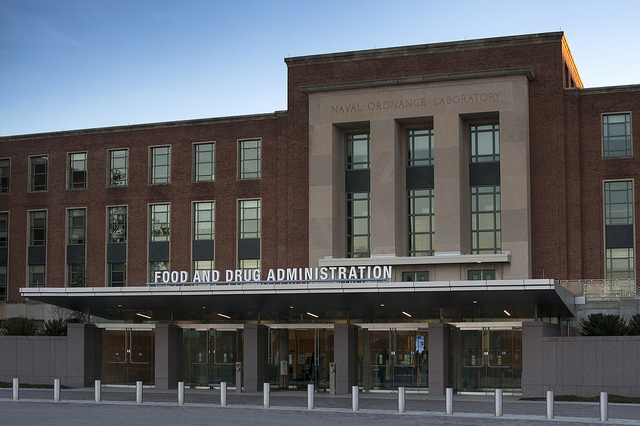
An independent committee that advises the FDA on cancer drugs has weighed in on medicines from Spectrum Pharmaceuticals and Oncopeptides, issuing negative votes on both.
First up was Spectrum’s poziotinib, which was developed to treat advanced non-small cell lung cancer (NSCLC) characterized by HER2 exon 20 insertion mutations, a rare genetic signature that drives an estimated 2% to 4% of NSCLC cases.
FDA staff flagged safety concerns at the proposed dose 16 mg dose. In clinical testing, 57% of patients experienced dose reductions and 85% of patients had grade 3 or grade 4 adverse events. They also noted that Boston-based Spectrum is seeking accelerated approval at that once-daily 16 mg dose, but the planned confirmatory study will be at 8 mg twice daily. Last Thursday, the committee voted 9 to 4 that the therapy’s benefits do not outweigh its risks. An FDA decision for the drug is due by Nov. 24.
Following Spectrum, Oncopeptides faced the advisory committee regarding its multiple myeloma drug, Pepaxto. The FDA awarded Pepaxto accelerated approval last year, but months later issued an alert that noted a clinical trial found an increased risk of death associated with the drug. Oncopeptides then stopped marketing the drug in the U.S.
FDA staff pointed to results in a confirmatory trial for Pepaxto, which did not meet the goal of progression-free survival, a measure of how long patients live without their cancer worsening. Staff also added that overall survival was worse in the Pepaxto group. Results showed a higher total number and percentage of deaths in the Pepaxto arm compared to the group given a standard multiple myeloma treatment. Regulators in Europe reached different conclusions about the drug, approving it last month. It is marketed there as Pepaxti. But the FDA advisory committee remained unconvinced by the company’s analyses and the European approval. On the question of whether the drug’s benefits outweigh its risks, the committee answered “no” by a 14 to 2 vote.

A Deep-dive Into Specialty Pharma
A specialty drug is a class of prescription medications used to treat complex, chronic or rare medical conditions. Although this classification was originally intended to define the treatment of rare, also termed “orphan” diseases, affecting fewer than 200,000 people in the US, more recently, specialty drugs have emerged as the cornerstone of treatment for chronic and complex diseases such as cancer, autoimmune conditions, diabetes, hepatitis C, and HIV/AIDS.
The standard qualifier for every FDA advisory committee meeting is that the regulator is not required to abide by the committee vote, but it usually does. If that holds true for Spectrum and Pepaxto, the chances don’t look good for a favorable decision from the FDA.
Here’s a look at other recent regulatory news.
—An experimental gut microbiome therapy from Ferring Pharmaceutical won the backing of an FDA advisory committee, which voted 13 to 4 that the treatment’s data are adequate to support its efficacy. Switzerland-based Ferring designed its therapy, RBX2660, to reduce the recurrence of C. difficile infection (CDI). The committee also voted 12 to 1 with one abstention on the question of whether the data are adequate to support the safety of the Ferring therapy in those 18 and older following antibiotic treatment for recurrent CDI.
—Children have been excluded from many clinical trials due to what the FDA now says was a “misperception that excluding them from research was in fact protecting them.” That thinking is changing and the FDA has issued draft guidance setting out an ethical framework for including and protecting children in clinical trials. The draft is open to public comment for the next three months before the FDA finalizes the guidance.
—The FDA placed a partial clinical hold on a pivotal study testing Viaskin, a peanut allergy patch in development by DBV Technologies. That study has not yet started but France-based DBV said the agency has asked for adjustments to the statistical analysis of the patch’s adhesion, among other changes. According to DBV, the FDA said these modifications are needed for the study to support a future biologics license application.
—Eli Lilly cancer drug Retevmo received FDA approval for treating advanced solid tumors characterized by a RET gene fusion. The accelerated approval covers the treatment of cancers that have progressed following at least one prior treatment. Retevmo won its initial accelerated approval in 2020 for the treatment of three RET-driven cancers: non-small cell lung cancer (NSCLC), thyroid cancer, and medullary thyroid cancer. With the latest tumor agnostic approval, the 2020 accelerated approval in NSCLC has been converted to a traditional one.
—Clinical trials of a Merck HIV drug that were paused by the FDA last year can now resume, but at a lower dose. Merck also said it will no longer pursue development of the HIV drug, islatravir, for HIV prevention. The FDA placed multiple tests of the drug on full or partial holds after the observation that some patients treated with islatravir developed lower levels of two types of immune cells.
—Larimar Therapeutics was also able to resolve a clinical hold. Last year, the regulator paused a dose-ranging clinical trial evaluating the biotech’s treatment for Friedreich’s ataxia, a rare neuromuscular disorder, after deaths were reported in a monkey study. Those deaths all happened in monkeys given the highest dose of the drug.
The lift of the full clinical hold comes with the imposition of a partial hold. The planned Phase 2 trial now has a requirement that the FDA review data from a lower 25 mg dose group before the study escalates to a higher dose in the second cohort. Larimar said it expects to begin this study in the fourth quarter of this year; data are expected in the second half of 2023.
Photo by FDA












